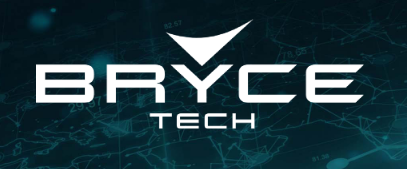Bryce Start-Up Space Report – Going Down
11th Jan 2023
The Bryce Start-Up Space Report shows that space SPAC stocks have decreased by 35% compared to their $10 per share issue price. Of course, the performance of the publicly-traded SPACs may well affect the availability of funding for future such deals.
Special-Purpose Acquisition Companies (SPACs) are designed to merge or buy out private companies who are willing to go public. The system raises money for these companies through an IPO and then uses the funds to merge companies which form the basis of the public entity and therefore the ongoing SPAC concern.
Virgin Galactic were the first of this type of company among New Space companies, as they merged with Social Capital Hedosophia and started trading on the Stock Exchange in late 2019. Some large companies have taken advantage of the program since, including Planet Labs and Virgin Orbit. So what has happened to the stocks since?
Downward Trend in SPAC Stocks
SPAC stocks have come in for a lot of criticism. Will Ashworth, writing for NASDAQ, reported on Securities and Exchange Commission Chair Gary Gensler and his criticisms of SPAC rules:
“Gensler is concerned that investors aren’t getting the same amount and quality of information with special purpose acquisition companies (SPACs) as they do with traditional initial public offerings (IPOs).”
SEC Chair Gensler spoke of the perceived unfairness of the scheme. “PIPE investors may gain access to information the public hasn’t seen yet, at different times, and can buy discounted shares based upon that information.”
SPACs always ran the risk of creating an investment bubble as a lot of funds entered companies in the short term. Unfortunately, the space industry’s reputation could get caught up in the downturn in SPAC stocks.
The trends we can see in the existing SPACs also shows that the investments may be risky, and a way for companies to receive funding faster than traditional IPOs which can come with its own set of issues.
The public trend and pressures on the market have seen SPAC prices drop, with some trading at a fraction of their original value.
The Bryce Report on the matter explains that the “largest single start-up space investment category continues to be venture capital, representing $9 billion of the $15 billion raised during the year.”
2021 as ‘The Good Old Days’
2021 was the year of the SPAC and the report shows that nearly $4 billion was raised, but criticism has put pressure on those considering this fundraising method. Both Tomorrow.io and D-Orbit had announced their SPAC deals in 2021, but pulled out in 2022.
Tomorrow.io scrapped the merger plan with SPAC partner Pine Technology Acquisition Corp “due to market conditions.”
SPACs certainly seem imperfect in many ways, and the market’s reaction to this criticism has seen some financial losses. Unfortunately, the knock-on effect could be less funding making its way into the space industry as people lose faith, especially with the SPAC model. Calls for rethinking and restructuring the Special Purpose Acquisition Company model may even be heeded in the future to ensure the stability and safety of this offering.





Thank you for your comment! It will be visible on the site after moderation.